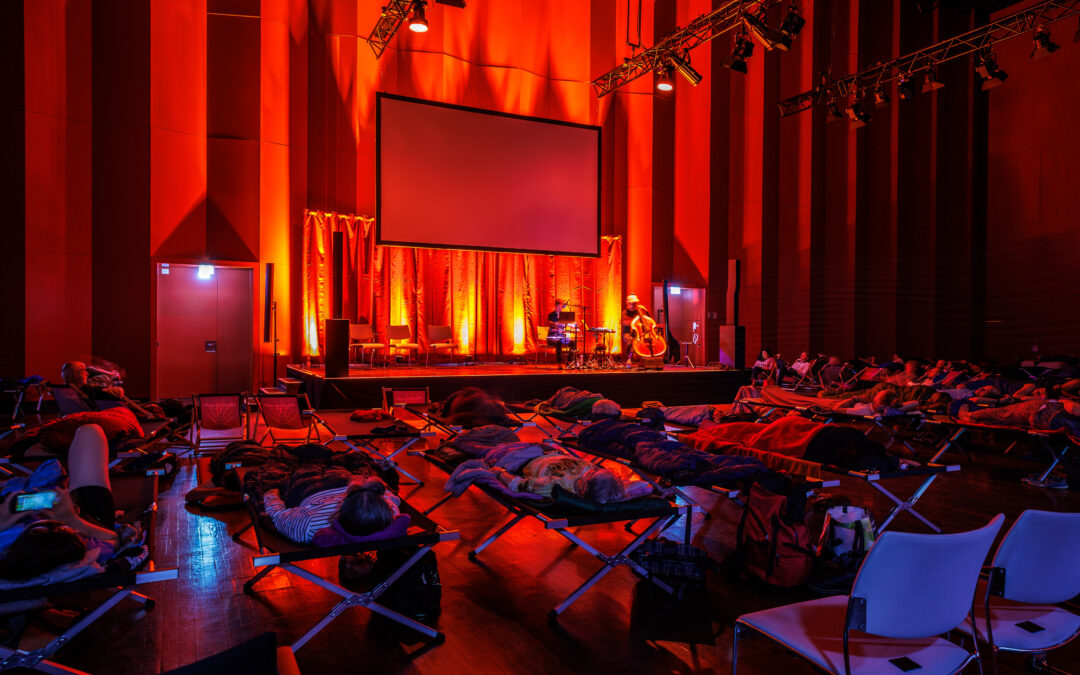On June 1st, our first large event took place – a “Lullabyte” Sleep Concert hosted at Hygienemuseum Dresden as part of the Sound&Science-series, an established format at Dresdner Musikfestspiele in collaboration with TU Dresden.
Why would people come to a concert in order to sleep, giving up their cozy home beds for a night together with others? What sounded like a wild idea with unclear outcome turned to be a remarkably successful event with a large, diverse, and enthusiastic audience. After two introductory talks about the meanings of sleep and the impact of music on the sleeping brain by Martin Dresler (Donders Institute of Radboud University Medial Center) and Kira Vibe Jespersen (Aarhus University), the audience was invited to join in a discussion on the impact of music on sleep and dreams, moderated by Miriam Akkermann (TU Dresden). The vivid discussion and questions from the audience showed that sleeping is highly important and a very personal topic of concern: Why do we sleepwalk? Can you talk to other people while dreaming? Is sleep related to developing or preventing from chronic diseases? Those were only some of the questions asked.
After a short break, the night-long concert started. Berlin-based bass-player Klaus Janek played together with Miriam Akkermann, flute, creating a set of ambient, slowly evolving musical atmospheres shifting between different tonalities and textures, with the compositional structure mirroring the rhythms of the human sleep cycle. While a concert normally is a focused, short-term experience, this music invited people to lie down, rest and sleep. In the morning, an algorithmically generated soundscape by Berlin-based startup Endel shifted people back into the day. If you are curious how people slept in Dresden, how the music impacted them and what they dreamt, stay tuned for the upcoming outputs of our research!
